Season 3, Episode 10
Glitter, Growth, and Green Innovation with EcoStardust
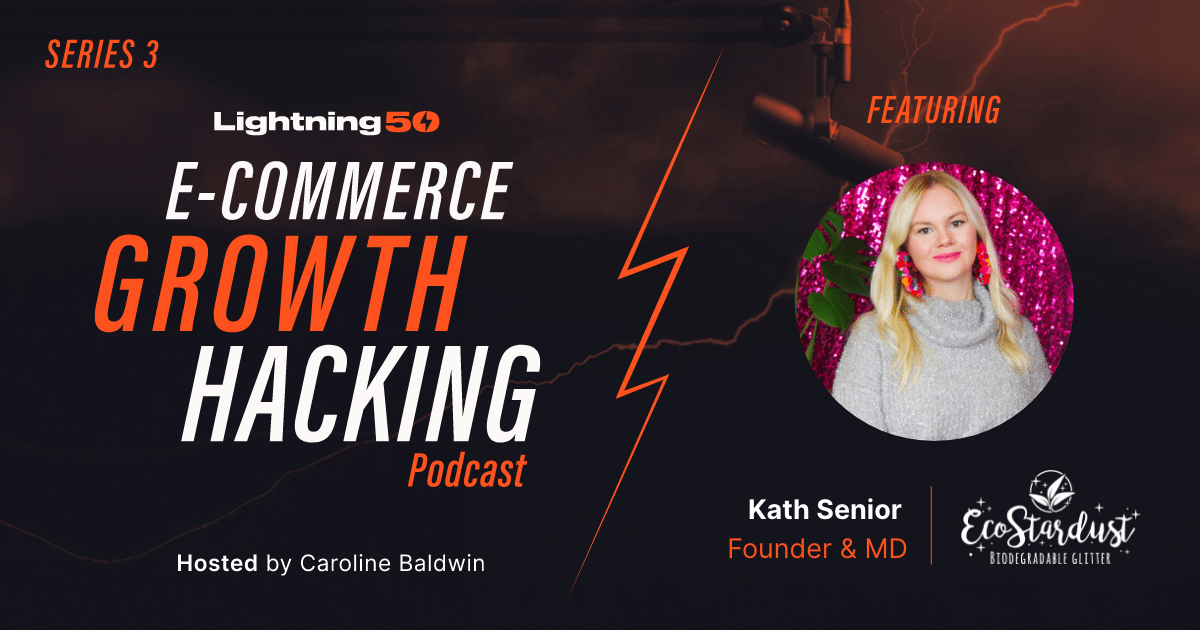
Ever imagined a world where the sparkle of glitter doesn’t come at the cost of the environment?
In the last episode of the series we talk to Katherine Senior, the founder of EcoStardust, a brand that sells biodegradable eco glitter for the eco-conscious.
We dive into the heart of green innovation and how a plant-based alternative to traditional glitter was born. Kath opens up about the trials and triumphs of running a business during the pandemic,and how she succesfully leveraged technology to serve customers bette.
When you think about glitter, it’s all about the shine and shimmer. But what if that shine could be eco-friendly? EcoStardust has made it possible. Listen as Kath shares the company’s journey since its 2017 launch, the influence of impactful video content, and the importance of educating customers on what biodegradable glitter really means. Discover how EcoStardust ensures their products are independently tested and their creative approach to sustainable packaging.
The conversation doesn’t stop there. Kath spills the secrets on how her team stays connected and productive even while working remotely. From using collaboration tools to her top tips for organization and efficiency – dive in to learn about maintaining a smooth workflow in a digital workspace.
Kath also offers an engaging insight into EcoStardust’s expansion into new product ranges and a sneak peek into their commitment towards sustainable growth. Tune in for a conversation that sparkles with innovation, sustainability and resilience.
Season 3, Episode 9
The Changing Face of Apparel: Embracing Minimalism and Sustainability
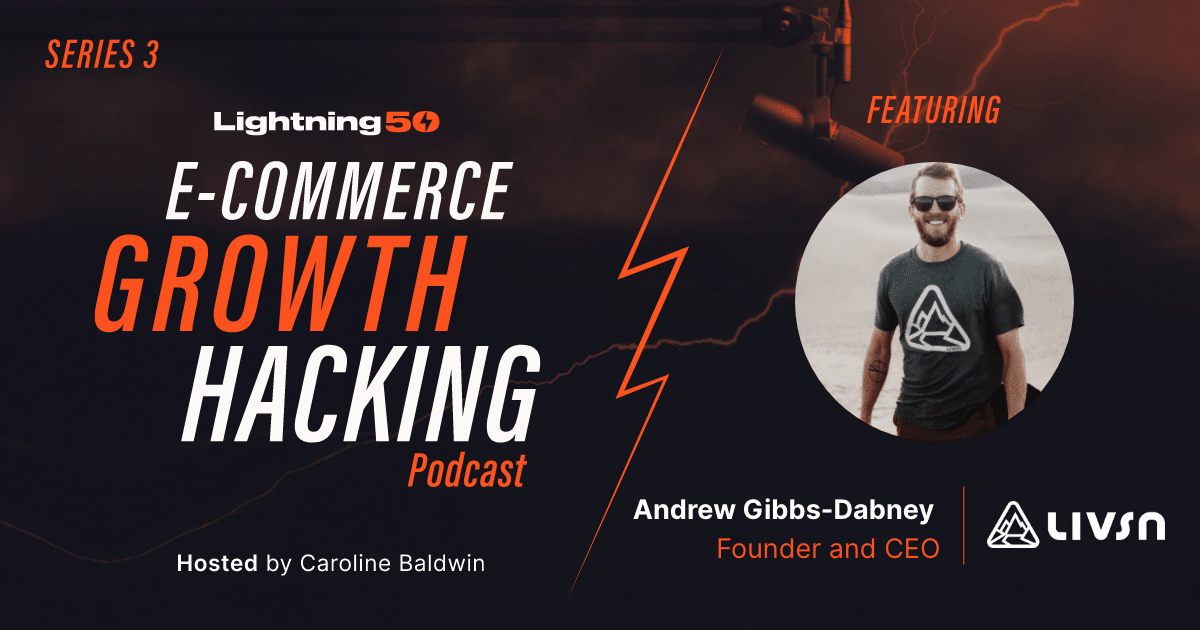
Join us on an enlightening journey with Andrew Gibbs-Dabney, founder and CEO of LIVSN is a premium outdoor sustainable apparel brand.
With an intriguing path towards minimalism, Andrew shares how scaling back can open up a world of possibilities and introduces us to his brand’s ethos of owning less but achieving more with our possessions. His perspective on the COVID-19 pandemic reveals how people’s change in lifestyle has led to an increased demand for versatile and durable clothing.
Delve into the world of technology that fuels LIVSN, as Andrew sheds light on the various platforms they harness – Shopify, MailChimp, Meta, and Brightpearl. Learn how these tools influence business operations, shape future plans, and mitigate challenges, including supply chain disruptions and increased freight costs, borne out of the pandemic. This conversation promises to leave you with a deeper understanding of how technology can be leveraged for business growth, even in challenging times.
Lastly, Andrew emphasizes the significance of building emotional bonds and establishing a strong brand. He believes that in the world of business, especially in the apparel industry, sustainability is not just about eco-friendly practices, but also about emotional sustainability through a hard-hitting brand story. Listen in to grasp these invaluable entrepreneurial insights in the latest episode of the podcast.
Season 3, Episode 8
Marketing Mastery for E-commerce: A Deep Dive into SkateHut's Playbook
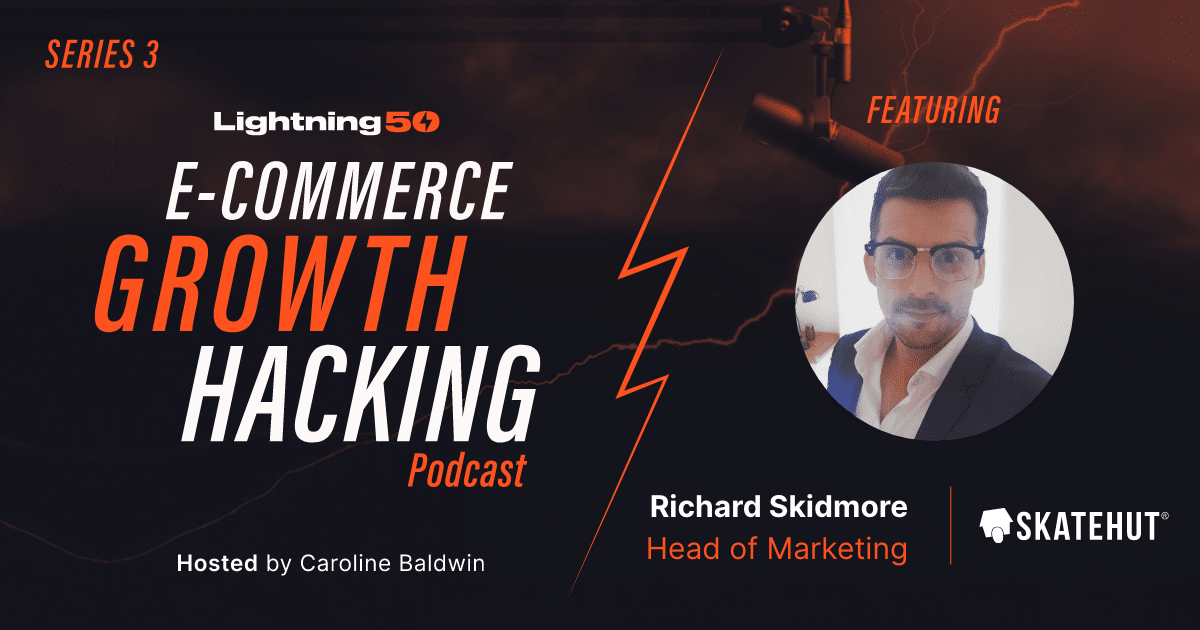
Are you curious about the strategies behind the astonishing growth of e-commerce brands? Want to get the inside scoop on how SkateHut became a leading hub for skateboards and roller skates amidst the pandemic-triggered economy?
In this episode, we chat to Richard Skidmore, the head honcho of marketing at SkateHut, who spills the beans on the firm’s strategic journey and how they’ve remained resilient in the face of changing tides.
Richard enlightens us on SkateHut’s digital marketing strategies, website optimization techniques, and their secret sauce for pushing the business forward. We also delve into how to trim down the escalating costs of Google Ads. Plus, Richard shares insights about the role of YouTube in ramping up brand recognition.
Lastly, we heel flip towards the fascinating realm of chat GBT and its impact on businesses. Richard sheds light on its potential for content generation and , technical problem-solving. He also emphasizes the delicate balance of using data, creativity, and technology to make quick adaptations and gain deeper understanding of your audiences. So, gear up for an enlightening ride through the highs and lows of e-commerce growth and marketing strategies with us. You wouldn’t want to miss this, would you?
Season 3, Episode 7
Navigating the Green E-Commerce Boom with Bower Collective's Nick Torday
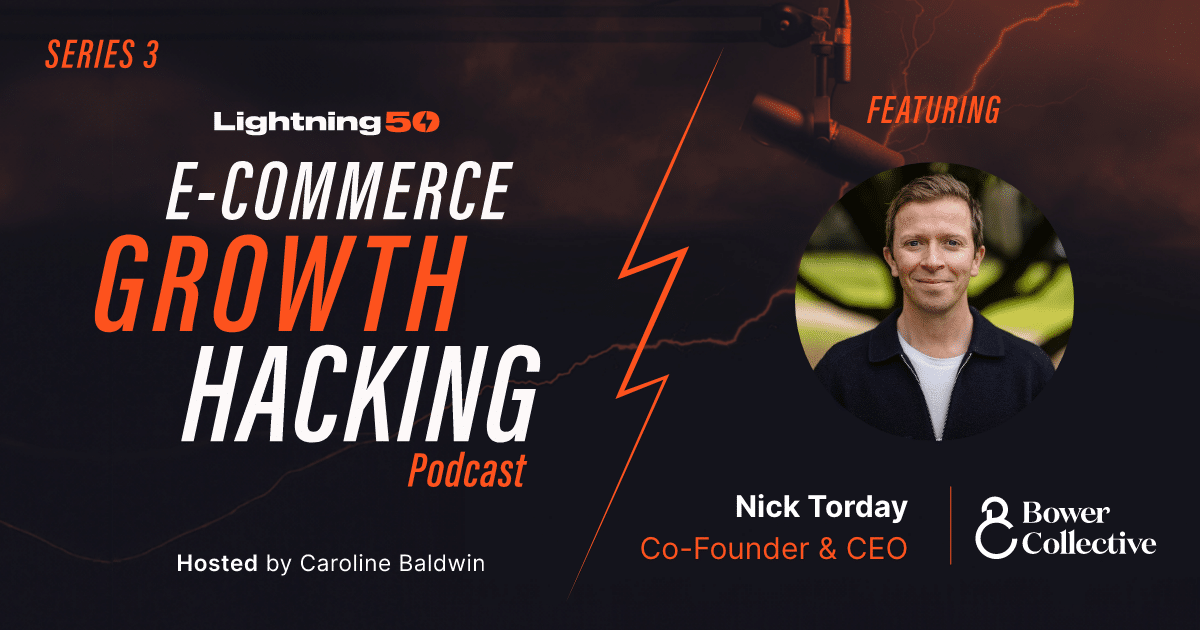
Imagine a world where plastic waste is eliminated and sustainability is not just an option, but a way of life. How can we contribute to this vision?
Enter Nick Torday, co-founder and CEO of Bower Collective, who joins us to share their remarkable journey to create a more sustainable future.
London-based and launched in 2020, Bower Collective is a home products retailer focused on natural, effective products with sustainable, reusable packaging. The brand acts as a one-stop shop for planet-friendly goods in home and personal care, and sells high-quality items such as laundry detergent, handsoap, supplements, skincare, bath products and more.
Bower Collective’s success in e-commerce, with a compound growth rate of 270% year on year, shows that sustainability and technology go hand in hand.
Nick dives into the heart of subscription-based retail, explaining how Bower Collective’s commitment to their mission of reducing plastic waste has resonated deeply with customers. We discuss the complexities of their platform and how they’ve integrated technology with sustainability. Nick also offers insights into their custom data platform, which enables real-time decision making, further driving e-commerce success.
As the conversation progresses, we explore the importance of sustainable brand growth and profitability in today’s dynamic market.
Nick shares his thoughts on the changing landscape for consumer brands, the macroeconomic circumstances Bower Collective is trading in, and the positive impact of the brand’s strategy on their underlying EBITDA and contribution margins over the last year.
Additionally, we touch on customer retention challenges and the adjustments people are making to prioritize sustainable products and services. Nick’s invaluable advice for merchants and entrepreneurs seeking to optimize e-commerce growth and scale is a must-listen for anyone passionate about sustainability and innovation.
Season 3, Episode 6
From Apparel to Accessories to AI: The Serge Denimes Story of Success in the Men's Jewelry Market

Ever wonder about the secret recipe that propels a brand’s swift transition from a clothing label to a global leader in men’s jewelry?
Brace yourself for some remarkable insights from Samuel Darcy, the dynamic Managing Director of Serge Denimes. Samuel unveils the enchanting journey of a brand that has ridden the wave of the booming men’s jewelry market, and succesfully pivoted from apparel to accessories. He lays bare the challenges and rewards of this strategic shift, with a sprinkle of anecdotes from his personal journey.
We then walk the tightrope between B2B and D2C, and Samuel makes a compelling case for the role of customer feedback in powering Serge Denim’s success. Hear about their tech stack choices and how partnering with the right allies can skyrocket a brand’s effectiveness and efficiency. Samuel shares Serge’s data-led approach to inventory planning, and how that has had a transformative effect on sales growth.
The conversation takes an interesting turn towards the potential of artificial intelligence in asset creation and immersive customer experiences. We explore how AI can be the game-changer for making inroads into the world of e-commerce.
Buckle up for a riveting conversation filled with stimulating insights and behind-the-scenes stories from the world of men’s jewelry.
Season 3, Episode 5
A Masterclass in E-commerce with Richard Longhurst: From Building a £1BN Sex Toy Empire to Teeing Off All Over Again with Golf Gadgets
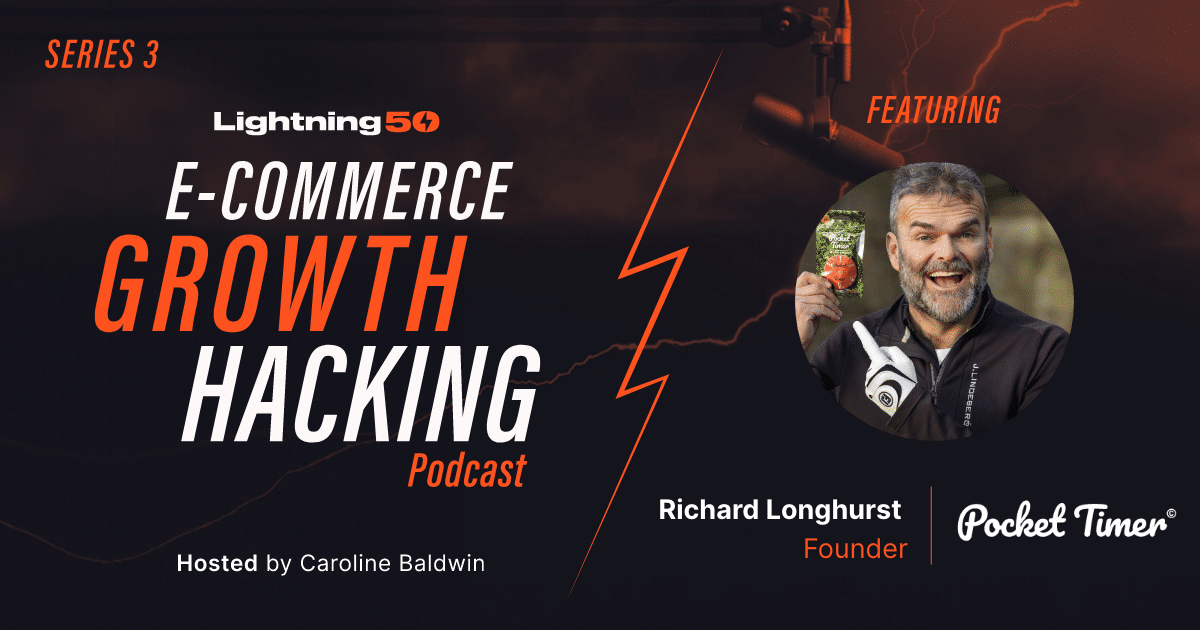
Get ready for a rollercoaster ride into the world of e-commerce, as we sit down with the co-founder of Lovehoney, Richard Longhurst.
In a gripping and enlightening conversation, Richard unravels the story of building the world’s largest sex toy retailer, and the origin of a new golf accessory innovation, the Pocket Timer. Hear first-hand how Lovehoney rose to prominence – and a £1BN sale – through superior customer service, savvy SEO strategies, and big, often eye-catching, ideas.
We then switch gears to discuss the hurdles Lovehoney faced due to adult content restrictions on social media. Richard shares insights into how they creatively navigated these challenges, keeping the press interested and their brand on the front lines. He also provides an interesting take on the risks of chat GPT for content production, and the blurry lines between journalists, bloggers, and influencers.
We cap off our chat with a deep dive into the evolution of e-commerce and the challenges Lovehoney encountered along the way. Richard candidly shares their biggest wins as well as the hard-earned lessons.
And to top it all off, Richard gives us a sneak peek into his new golf accessories venture, shedding light on the modern-day challenges of securing clicks and eyeballs in the e-commerce landscape.
This episode is a must-listen for anyone looking to gain a comprehensive, behind-the-scenes look at the world of e-commerce, from sex toys to golf gadgets!
Season 3, Episode 4
The Journey to Seven-Figure Earnings in E-Commerce: Progress Jiu Jitsu's Rise
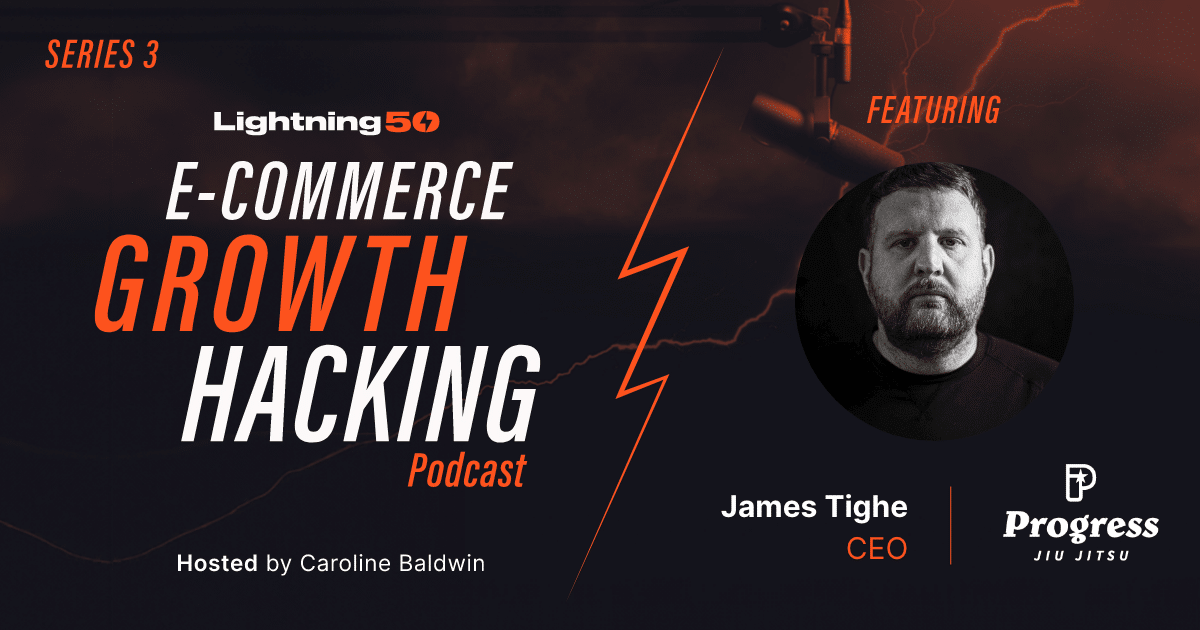
Ever wondered how an e-commerce business can skyrocket to a seven-figure turnover in just a few years?
Join us as we chat with the Founder and CEO of Progress Jiu Jitsu, James Tighe, who shares the secrets behind his company’s meteoric rise since 2018. Learn how the popularity of Brazilian Jiu Jitsu has positively impacted their growth, the challenges they’ve faced along the way, and how investing in technology and automation has been crucial to their continued success.
Brexit threw a curveball at many businesses, but Progress JJ found a way to turn it to their advantage, and better cater to European Union customers – find out how.
In today’s episode, James also reveals the role of the international market in their expansion plans, along with the technology and sponsorship strategies they’re employing to achieve their goals. Plus, don’t miss out on the discussion about leveraging social media and the untapped potential of TikTok to reach an even wider audience. This insightful conversation with James is not to be missed!
Season 3, Episode 3
Harnessing Turmeric's Power for Wellness and Winning in Business: Thomas Hal Robson-Kanu on Health, Sports, and Successful Entrepreneurship
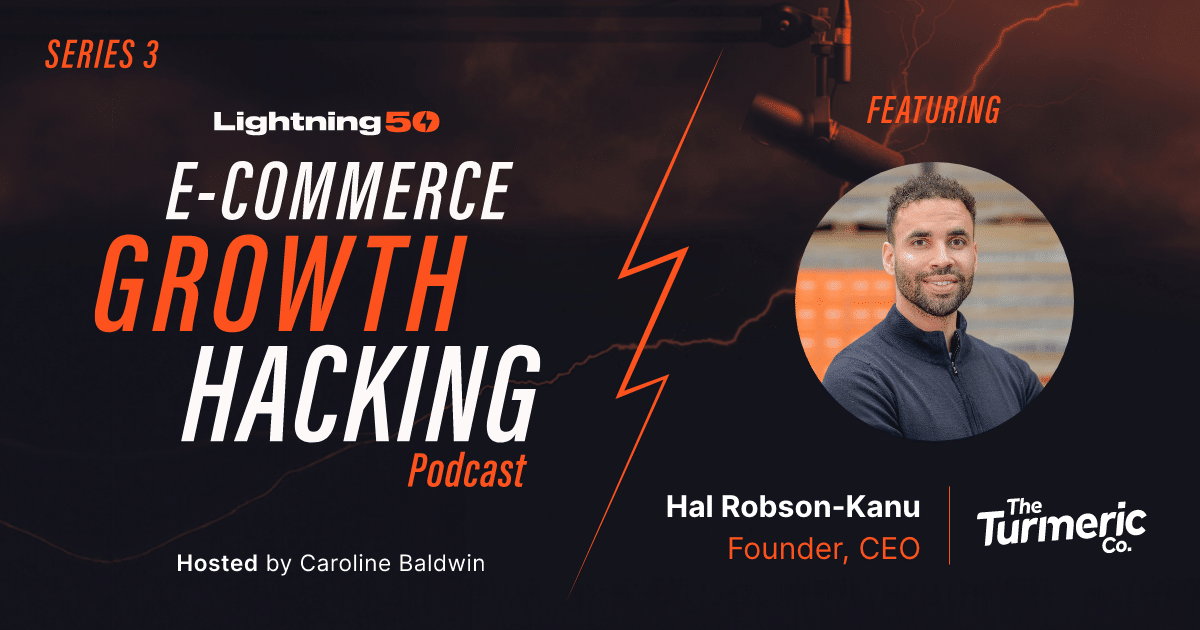
“A lot of businesses deliver a product to the market which is going to generate profits, not positively impact health. For us, we were all about impacting health, delivering a high quality product to as many people as possible and making it convenient for them to access. Because we made that purpose our North Star, people noticed the difference.” – Thomas Hal Robson-Kanu, CEO at The Turmeric Co.
Imagine experiencing powerful relief from inflammation and pain, all from natural ingredients. That’s what our guest, Thomas Hal Robson-Kanu, co-founder of the Turmeric Co., discovered through his journey of creating a unique turmeric-based blend. Join us as Thomas shares how this product not only transformed his athletic career, but also the lives of countless others seeking a healthier, more functional lifestyle.
Dive into the challenges Thomas faced in manufacturing a truly functional health beverage, and how his dedication to product quality, owning the manufacturing process, and taking a science-backed strategy led to the creation of a brand that truly stands out in the market. We also discuss the importance of diverse education opportunities for athletes, as well as the growing alignment between sports and healthy choices in consumer brands.
Finally, learn how data and technology, can revolutionize your business by improving inventory control, eliminating packing mistakes, and increasing efficiency. Discover how these innovations not only unlock growth potential but also enhance the customer experience, ultimately fueling your business’s success. Don’t miss this enlightening conversation with Thomas Robson-Khanu, as we explore the world of natural nutrition, business growth, and the power of data and technology.
Season 3, Episode 2
From Traditional Retail to Digital Powerhouse: ROKA London's Journey to E-commerce Success and AI Integration
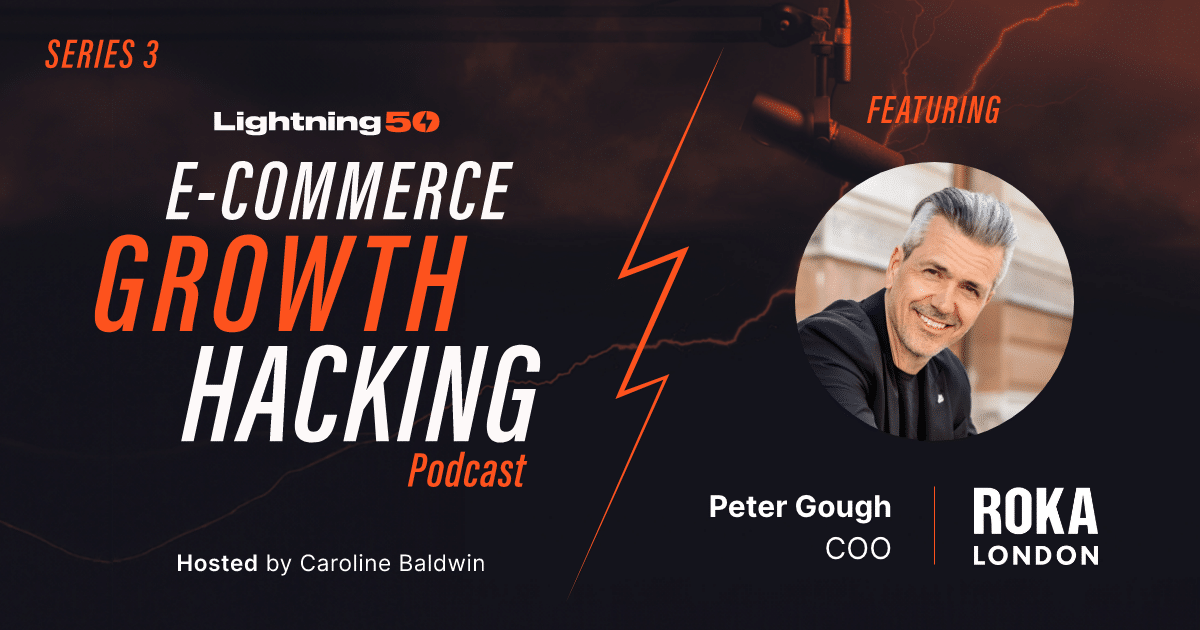
Ever wondered how to successfully transform a traditional retail brand into a digital powerhouse?
Join us as we chat with Peter Gough, Chief Operating Officer at ROKA London, who shares the incredible journey of turning their outdoor lifestyle and accessories brand into a thriving digital and direct-to-consumer business. Discover how they experienced massive growth thanks to their digital marketing approach, and the impact of increased online sales on their margins and brand.
In this conversation, Peter reveals how ROKA London harnessed the power of digital technology to further grow their business. Learn about their strategies for increasing engagement on social channels, utilizing email marketing to reach new audiences, and the success of their student discount program.
Peter also discusses the implementation of a cloud-based SaaS platform, which allowed their employees the flexibility to work from anywhere, ultimately driving business growth.
Lastly, don’t miss Peter’s insights on the shift to AI, and the amazing opportunities it presents for businesses. Hear about the importance of embracing change, investing in the right technology for scalability, and integrating different channels for growth – such as expanding to new audiences and territories. If you’re looking to leverage AI technology and scale your digital ecosystem, this episode is a goldmine of information you won’t want to miss!
Season 3, Episode 1
Unlocking the Secrets of Industry West's E-Commerce Success: Marketing Strategies, Innovative Technologies, and Staying Ahead in a Competitive Landscape
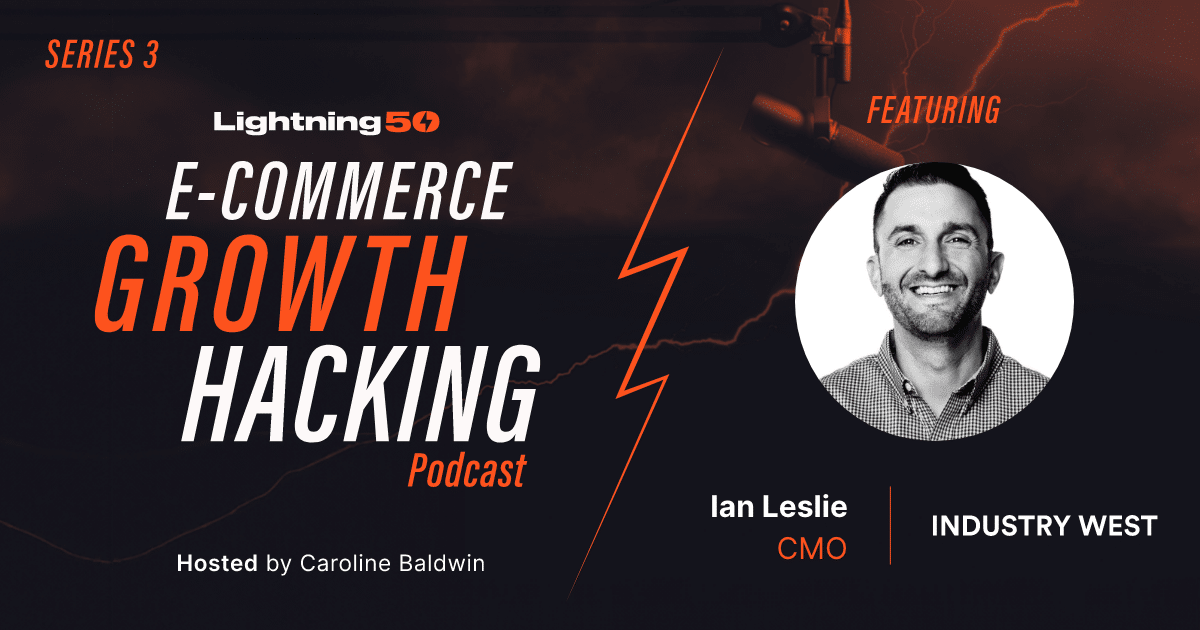
Are you ready to uncover the secrets behind the impressive growth of e-commerce furniture company Industry West? With 80% year on year growth and annual sales figures in the eight digits, we sat down with Ian Leslie, their CMO, to discuss the importance of product curation, being first to market with trends, and the various marketing strategies employed by the company to achieve this success.
Join us as we explore how Ian has utilized social media, white labeling channels, and aligning with credible partners to boost brand awareness. We’ll also dive into how e-commerce platform integrations, such as SMS and Nosto, have enabled Industry West’s success and discover the innovative use of AI-powered negotiation bot Nibble in improving customer satisfaction.
As we discuss the ever-changing landscape of e-commerce, we’ll examine the challenges of staying on top and Ian’s two biggest mistakes as a marketer.
Learn about the importance of choosing the right technology to power your business growth, managing expectations when introducing new technologies, and how using Inventory Planner can help make informed decisions about your inventory and free up crucial cash flow. Don’t miss this insightful conversation with Ian Leslie, as we tackle the world of e-commerce growth.

